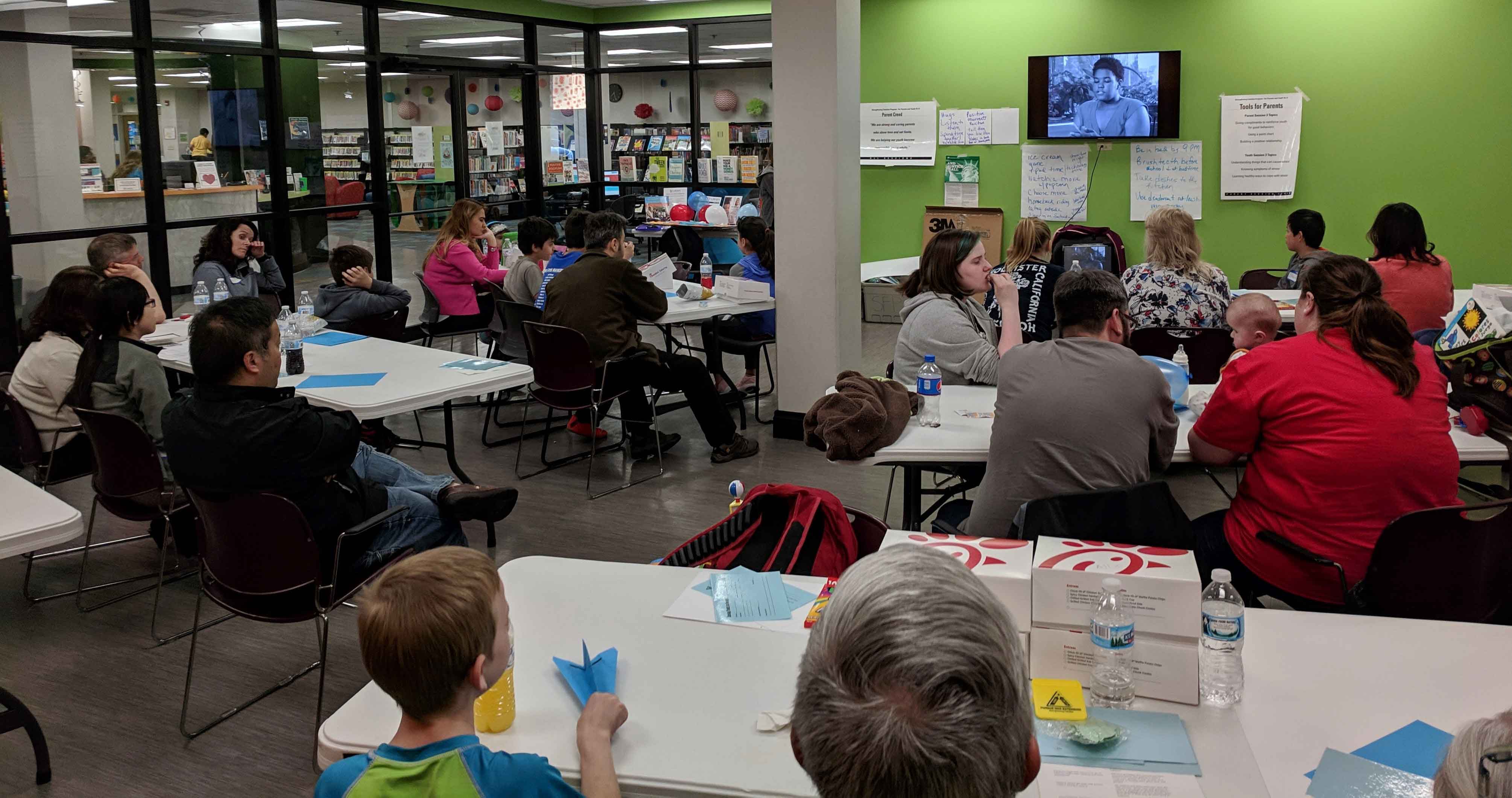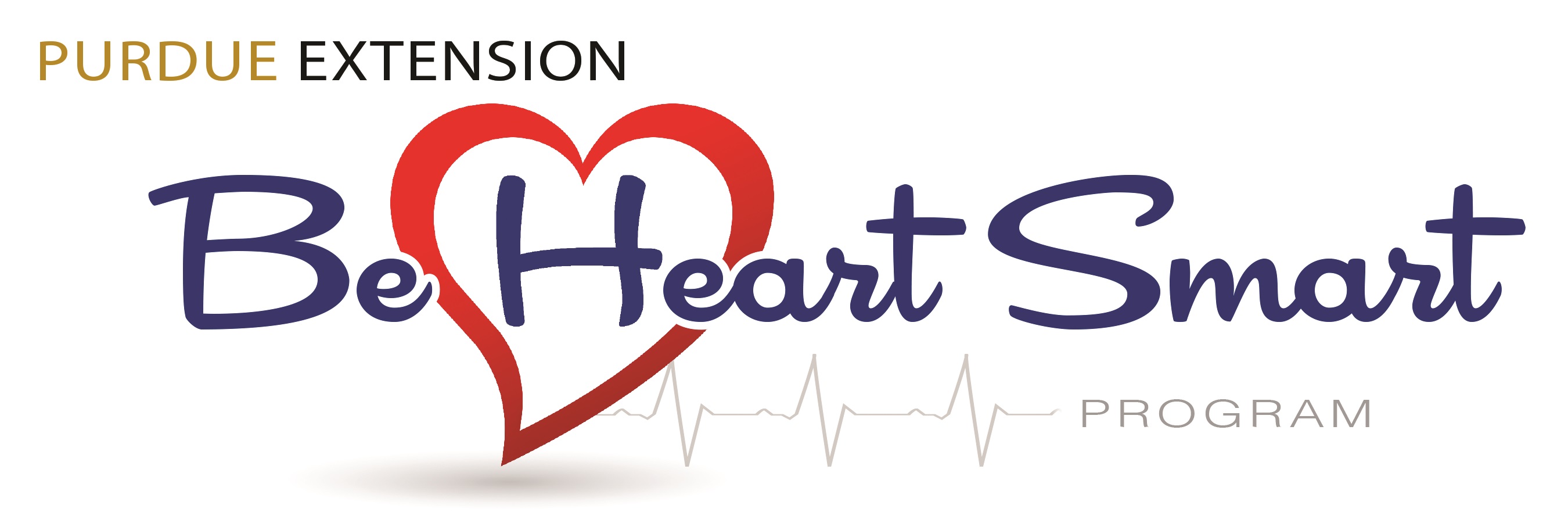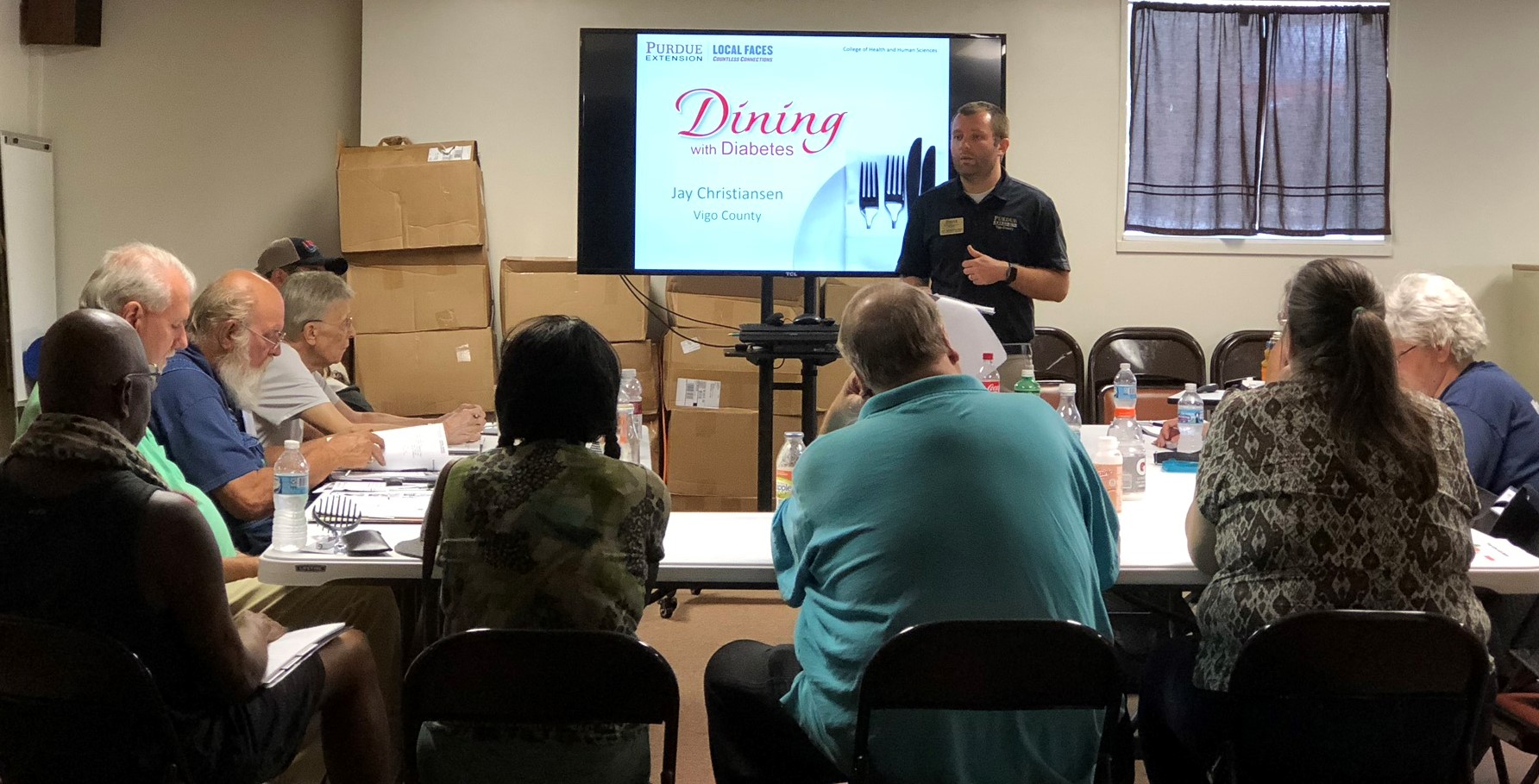Health and Human Sciences
It's as simple as
Food, Family, Money, & Health

The Health and Human Sciences (HHS) Educator delivers educational programs in Vigo County that are evidence and research based, to all community members. HHS Purdue Extension focuses on issues related to families and parenting through programs like our "Strengthening Families Program". HHS Extension delivers health and wellness and food and nutrition programs to help with chronic diseases, like "Dining with Diabetes" and "Be Heart Smart". Through HHS you can also learn about food safety and home food preservation. Where Does Your Money Go helps those who struggle financially get back to basics by learning budgeting.
Contact Us
Purdue Extension Vigo County
275 Ohio St.
Terre Haute, IN 47807
(812) 462-3371

GAIL WRIGHT
Examples of Programming
The Strengthening Families Program: For Parent and Youth 10-14 is an evidence-based program that can help prevent teen substance abuse and other behavior problems, strengthen parent/youth communication skills, increase academic success in youth, help teach youth skills for dealing with stress and peer pressure, prevent violence, and aggressive behavior at home and at school. Ranked as the #1 prevention program out of 6,000 analyzed by the World Health Organization, the Strengthening Families Program consists of 7, 2-hr. long classes comprising of youth, parent, and family sessions.
Session topics included:
- Love & Limits
- Dreams & Goals
- House Rules
- Appreciating Parents
- Encouraging Positive Behavior
- Dealing with Stress
- Following Rules & Using Consequences
- Peer Pressure
For more information, visit https://www.purdue.edu/hhs/extension/strengthening-families-program-for-parents-and-youth-10-14-post-editable/

Each year, about 659,000 people in the United States die from heart disease, that’s 1 of every 4 deaths (CDC)! Purdue Extension’s Be Heart Smart Program helps individuals learn information to prevent and reduce their risk of developing heart disease. Over the course of four lessons, participants will learn about the risk factors associated with heart disease, important numbers to know, heart-healthy eating, and how to make sustainable heart-healthy lifestyle changes.
Be Heart Smart cost $15 to attend. For more information, visit: https://www.purdue.edu/hhs/extension/program6/
According to Gallup, only 1 in 3 Americans use a budget and 30% have a long-term financial plan involving savings and investments for the future. Where Does Your Money Go? Program is designed to help consumers better understand how to spend their money. Taught over two, one-hour sessions, participants learn about financial management practices such as needs vs wants, writing goals, tracking expenses, identifying spending leaks, and how to develop a spending-savings plan. Furthermore, program activities help participants increase their knowledge of money management practices that promote financial stability and adoption of new habits that can lead to financial control.
For more information, visit: https://www.purdue.edu/hhs/extension/where-does-your-money-go/According to the National Diabetes Statistics Report 2020, 34.2 million Americans have diabetes and another 88 million have prediabetes (CDC). Furthermore, people who have diabetes are 2.3 more likely to have greater healthcare cost than people who don’t have diabetes.
The Dining with Diabetes Program is a designed to assist and support individuals who have diabetes as well as their families to help reduce the burden of diabetes by increasing knowledge of healthy foods, tips to prepare quick, healthy, and tasty foods, demonstrating proper cooking techniques, promoting physical activity, building confidence, and providing opportunities for participants to learn from one another.

The cost to attend Dining with Diabetes is $40 per individual or $65 per couple. To learn more about Dining with Diabetes, visit: https://www.purdue.edu/hhs/extension/programs-food-0/#dining-with-diabetes
Extension Homemakers
VIGO COUNTY EXTENSION HOMEMAKERS NEWSLETTER
March 2026
PRESIDENT’S MESSAGE
Hello everyone. We’ve all had a few rough weeks, I hope this next month will be better and better for us all.
Dates to Remember
- March 10, 2026 Sewing Day, Tuesday, 10am, Community Center, Vigo County Fairgrounds, 10am – afternoon…leave when you need
- April 9, 2026 Spring District Meeting (Vermillion County), see included flyer. Mail club reserve tion to Ruth Ridener by March 19th. (she will mail Vigo County’s total reservations and monies to Evelyn Hixon in Clinton)
- April 13, 2026 Past Presidents Meeting
- 11:00am, Greek’s Pizzeria, 5030 S. 7th St., Terre Haute, IN
- (Next to Top Gun) Dues of $2.00 are due at the April Meeting
- April 27, 2026 Spring Fling, Community Building, Vigo County Fairgrounds. Info included in this Newsletter
- April 27 – May 29 Vigo County Vocal Chords 2026 Spring Show (see included flyer)
- May 4, 2026 Council Meeting (previously Meadows Elementary School—behind Wabash Ave nue Rural King) 55 S. Brown Avenue, Terre Haute, IN
- Executive Board, 9am; Full Council (Executive Board + Club Presidents) 10am
- June 8, 2026 Past Presidents Meeting, time and place TBA
- June 15 – 17, 2026 Home & Family State Conference
- Nashville, IN. Info included in this newsletter, more coming in following months
- June 22, 2026 Achievement Day, Time and place TBA, Council Meeting immediately following
Volunteer Community Support Reporting Form
Please let your Club President know about your volunteer activities. How many hours donated, items donated, and value of items donated. I need this information ASAP so I can compile the clubs’ totals for Vigo County and send my form to our District Representative. I have some already, but if you haven’t turned one in, please do so. This helps let everyone know how active we are in our communities. You can email it to me at: president.home.ext.vigo.co@gmail.com or text me the information at: 812-243-3473
Sewing Day
Tuesday, March 10, 10am, Community Center, Vigo County Fairgrounds, 10am – afternoon…leave when you need [some bring sack lunch]. We need members to cut out receiving blankets and burp cloths, members to pin them together, members to sew them, and members to press them. The more the merrier!
Spring District Meeting
Thursday, April 9, 2026 at Vermillion County Fairgrounds 4-H Building, Fairgrounds Road, Cayuga (off Highway 63). Registration and refreshments 9am – 10am; Presidents meeting 9:30am; Business meeting 10am. The Program will be on Revolutionary War Women. Cost for the day is $20.00. Wear red, white, or blue and each club represented please bring a silent auction item. Official Flyer for this event is included in this newsletter.
Past Presidents Meeting
Monday, April 13, 11:00am, Greek’s Pizzeria, 5030 S. 7th St., Terre Haute, IN
(Next to Top Gun) Dues of $2.00 are due at the April meeting.
President Terri Taylor would like to see more of our past presidents at these meeting. Because of my part-time job, I cannot attend all of them, but when I’ve gone, I’ve had a fun/informative time.
State Presidents Project
Please let me know how you are doing on Sharing Some Bloom(er)s. Items can be girl/boy underwear, socks, disposal diapers, and Depends (for nursing homes). I adopted Lost Creek Elementary School for this project and have sent many pairs of underwear and socks to them (boys and girls). Every time, they thank me and are very appreciative. Let me know the total number of items you have given.
Union Hospital
Donations of sleepers (with feet) to Union Hospital are still needed.
Spring Fling
Fayette Extension and Burnett are planning a fantastic day for us. The event will be held Monday, April 27, 2026 in the Community Building at the Vigo County Fairgrounds. The theme is Brunch with a Quilt. During the day our Vigo County Vocal Chords will entertain us with a celebration of some of your favorite patriotic songs. More specific information to come in April Newsletter. If you have any questions, please call Mary Lou Voll, 812-466-2928 or Sandy Kelly 812-243-5449.
IEHA Home & Family Conference
June 15 – 17, 2026Here is a taste of what we have to look forward to: International Study Program, Growing our IEHA Family, Aging in Place, Promoting Family Dinners Across America, Apples Around Indiana, Save the Girls (bring your good used bras with you-we are collecting for this organization), How Stress Affects Health, Sleep on It! (Why sleep matters), Chair Yoga, Food as Medicine, Scams and Protection from them, Director of Isaiah House organization creates a homelike setting for children removed from DCS until foster or kinships can be obtained).
As always, we’re having a Silent Auction—bring your items.We are continuing open mic night as well as games and gadgets. (Vigo County had a WONDERFUL piece of entertainment last year, you all should be proud of us!)
One last word for the membership: A few clubs lost members this past few months and I didn’t get the message out. Please let me know so I can spread the word.Educator Spotlight
Smile - It's Almost Spring!
Just Smile
Each year, I am asked to remind all entities associated with Purdue Extension that we are an institution that practices ensure that we practice accessibility on our websites and civil rights to avoid exclusion of any age, race, gender, etc. We hope that you will practice that effort, as well.
I have included some information and the definitions of Diversity, Equity, and Inclusion for you to consider. Those definitions can seem overwhelming and it may seem challenging to identify with the meaning. So, as you read through them try to consider a time when you were left out because you were “too small or too tall, a woman or a man, too young or too old”.
Finally, when you see someone that might fit in one of those categories above or an-other – just smile. According to GLO Science, “Throughout the world, there is one gesture that every person recognizes as a sign of happiness and friendship: the smile.” When you smile at someone you make someone feel better about them-selves and feel better about their situation — alleviating stress.
So, just smile – it will make you feel better too.
Definitions from Remote DEI Toolbox
- diversity: the presence of different types of people (e.g., from a wide range of identities and with different perspectives, experiences)
- equity: the state and process of ensuring equally high outcomes for all and remov-ing the predictability of success or failure that currently correlates with any social or cultural factors, examining biases, and creating inclusive environments
- inclusion: the state and process of putting diversity into action by creating an en-vironment of involvement, respect, and connection — where the richness of ideas, backgrounds, and perspectives are harnessed to create value
If you would like to have some of the information printed and mailed to you, contact Gail at (812) 462-3371 or wrigh509@purdue.edu .
Terre Haute District Council Meeting
At Vermillion County Fairgrounds
4-H Building
Fairgrounds Road, Cayuga (off Highway 63)
Registration and Refreshments 9:00 to 10:00 am
Presidents Meeting at 9:30
Business Meeting at 10:00 am
Program: Revolutionary War Women
Cost: $20
Send Reservations to Evelyn Hixon
1600 N 9th Street
Clinton, IN 47842
Deadline is March 26, 2026
Wear Red, White, or Blue and Each club represented please bring
a silent auction item. We can’t wait to celebrate with you!
Vigo County Vocal Chords
Salute to America
We will sing some of your favorite patriotic songs,
along with a few fun ones - like, Across America .. .ln About Three Minutes.
We operate on a first-come, first-served basis and donations are gratefully accepted.
Our 2026 Spring Show is available from April 2 7 - May 29, 2026.
DeDe Schindel: maildede@aol.com, cell phone at 812-259-5425

